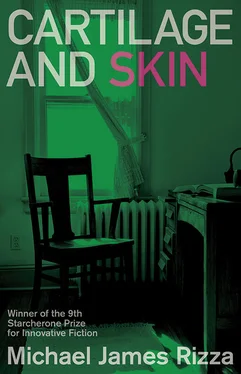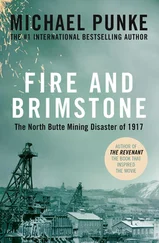Sitting in my desk chair, looking out the window, I sank into a mild, dismal reverie, the sort that usually provided me material for a new poem. However, I eventually turned on the computer and checked my email. There was nothing from Teresa Morris. I took this as a matter of course; after all, my discovery of the real Claudia Jones, not to mention the dead prospect of the supposedly distant Celeste Wilcox, seemed to thwart all my hopes. My efforts upon the playing field of men and pubescent boys alike had proved futile. The drop of potency that I had borrowed from Dr. Barnett, that joy-riding hero of urban streets, had dried up into flecks of white crud. Even though it was only morning, I wanted to drink myself into oblivion. Yet I had taken that route before, and I knew where it would lead me. Instead, I gave myself the screen name, the alias, Marduk and spent an hour in a chatroom for Jewish singles.
Later, I was once again under the delusion that I knew “noble accents and lucid, inescapable rhythms,” so I took up my marble notebook and decided to go to the bookstore, drink coffee, and write. I would be John Crapper for the afternoon. In the hallway, I hurried past Claudia’s apartment as silently as I could, but before I made it to the exit, a sudden compulsion took hold of me, and I found myself ascending the staircase to the second floor. With a mixture of trepidation and stealth, I headed down the corridor, eyeing the doors and occasionally looking back at the way I’d come. I felt something similar to what a middle-class family man might’ve felt as he approached the side door of a whorehouse in his hometown for the first time. However, unlike him, I wasn’t at the risk of losing my picturesque life, exposing myself to possible shame or expulsion, or even contracting a raw, sour-smelling disease. I merely needed to ask my landlord about Claudia Jones: Why was she gross and why did she have fans? Of course, the rodent-eyed man would meet my interest with suspicion, and if he one day mentioned my inquiry to Claudia, then she would be further confirmed in her belief that I was obsessive and crazed. I stood before apartment 2F and knocked. I waited and knocked again. Laminated signs were posted beside his door, giving instructions about smoke alarms, pets, blown fuses, lost keys, and other petty concerns, all presumably to circumvent any tedious tenant from making contact with him. After a minute outside his door, I suspected he wasn’t home.
I scrawled a brief note on a clean page in my notebook, asking him to come and talk to me. I ripped out the sheet, folded it in half, and using a tack from one of the laminated signs, affixed my request to the doorframe.
A moment later, however, I found my landlord outside, in front of the apartment building, at the bottom of the steps. When I came out of the door, he looked up at me with an expression of undiluted scorn, which he surely must have been wearing prior to my appearance before him. He was hunched over, bundled against the cold in a puffy jacket, and gripping a shovel by the middle of its handle, as if he’d just recently been choking it. His hat was pulled down over his brow, giving him an added touch of savagery. Amid faintly falling snow, alone in the blue-gray, somber cold, my landlord struck me as the last figure in a wasted world, with the narrow road behind him rendered inoperable and the buried vehicles not merely abandoned but left over from a livelier civilization.
“Careful,” he said.
At first, I assumed he was warning me about the slick steps, but I glanced down and saw a bag of salt at my feet.
“Thanks,” I said.
As I didn’t descend the steps, he continued to look up at me, relaxing his hold on the shovel.
“I was just looking for you,” I said.
“Oh. What about?”
“I wrote you a note.”
“You wrote me a note?”
“Yes. I wanted to ask you a question.”
“Where’s the note?” He watched me, expectantly, as if I might have the note upon me.
“I don’t have it. I put it on your door.”
“Okay,” he said. He made a gesture with the shovel, which seemed to imply that he was busy right now and he would read my note a little later.
“It’s nothing,” I said.
“Oh,” he said again and then started to shovel the snow off the bottom step. I knew the man didn’t like or trust me. I was an object of suspicion to him, a pet annoyance. I always suspected that he secretly enjoyed grumbling bitterly and stewing in his own rancor; he was the kind of person who needed to complain. After all, it was an easy way to deal with life: to nurture social barriers and thus protect himself. By turning away from me to clean the step, he was presupposing that a conversational gap existed between us and that my silly little note acted as our intermediary.
“I just have a question to ask,” I said.
Stooped over, he paused for a second and turned his head to fix me in his gaze.
“Claudia Jones,” I began to say, and he straightened up, his eyes more intense. I added, “I was just curious about what she does.”
“Are you still bothering her?”
“No. I just want to know about her work. You called her gross before.”
“Yes,” he said. “And, Dr. Parker, that’s perhaps a good reason to leave her alone. Stop bothering her.”
“Did she say that?”
“I know she likes to keep to herself.”
“But she told you that?”
“She doesn’t have to tell me.”
“I’m not bothering her. Listen—”
“No, you listen,” he retorted. He seemed anxious to argue with me, as if his insides were seething with contempt. He knitted his brows, pursed his bluish lips, and then repeated, “You listen.” He was angry and commanding. “You hear me. You listen.”
But he didn’t say anything else. He simply glared at me with incipient rage.
After a moment, I asked, “What?”
“Stick to yourself. That’s all.”
“I do,” I said quickly, pitifully aware of the enormity of this truth: I was always alone. Sometimes, after several days, I would suddenly realize that I hadn’t heard the sound of my own voice because there was no one to talk to, even though all around me a whole city heaved and sighed.
“Should I remind you—?” he began to ask.
“No.”
“Dr. Parker.”
“Don’t remind me. Whatever it is.”
“Whatever it is,” he echoed, aghast. “Whatever it is. I had—”
“I know. I know.”
But he desperately wanted to remind me.
Yes, he had paramedics carting a little boy on a gurney through the hallway and down the front steps of his apartment building, and he had the police asking him questions, and in the aftermath, he had all the nosey people in the vicinity of his home whispering to one another as well as annoying him with questions daily.
“Don’t,” I said.
“Then listen to me. Stick to yourself.”
“I just wanted to ask a simple question.”
“Keep it to yourself.”
“You called her gross.”
“Yes.” He was holding the shovel with one hand, and he was becoming so agitated that he actually shook it at me.
“Tell me,” I said, unwilling to cower or back down.
“You’ve got a computer. Go see for yourself.”
“What?”
He was bristling. He wanted to tell me. He was aching to tell me.
“What?” I repeated, my voice louder, sterner.
“Her website.”
“What is it?”
“I wouldn’t bother to remember,” he said, his words tinged with contempt. It must have been something lurid, something pornographic.
I opened my notebook and fished a pen out of the inner pocket of my overcoat.
“Come on now. What is it?” I had my pen poised, ready to write down the web address.
“I don’t remember it,” he responded curtly, as if defending himself against a charge of outlandish perversity.
Читать дальше












